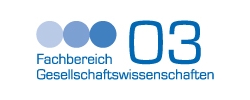Forschung
Research Focus
- Science Studies
- Sociology of Expertise
- Sociology and Politics of Climate Science
- Historical Sociology
Julia Schubert is a sociologist working in
the field of science studies. Her research explores the relation between
science and politics, as well as notions of expertise. She is particularly
interested in how scientific efforts to understand environmental issues are
intertwined with political efforts to govern such issues. Empirically, she has
worked on the history of climate science and policy.
Attribution Science as a Technology of
Anticipation
Postdoc Project
As a postdoctoral researcher with the
Fixing Futures RTG, Julia studies the emerging field of extreme-event
attribution. Her project explores how this field of attribution science works
as a 'technology of anticipation', that is, how it conceptualizes and engages
with the open and inevitable future of a changing climate. To address this
question, the project focuses on the 'epistemic machinery' (Knorr-Cetina 1999)
of this emerging research field. It is concerned with the methods, models, and
protocols, the computers, programs, and organizations that the science of
attribution has evolved around. Drawing on the analysis of scientific texts, as
well as archival and field research, the project seeks to situate this
'epistemic machinery' within the broader trajectory of the climate science
field and its relation to the state.
Engineering the Climate: Science,
Politics, and Visions of Control
First Book Project
Notions of the impending climate crisis have pushed a set of
highly contested techno-scientific measures onto policy agendas around the
world. Suggestions to deliberately alter, to engineer, the Earth's climate have
gained political currency in recent years not as a positive vision of
techno-scientific innovation, but as a daunting measure of last resort. The
controversial status of various so-called climate engineering proposals raises
a simple, yet pressing question: How has it has come to this? And, more
specifically, how did such contested measures earn their place on policy
agendas, despite enormous scientific complexities and fierce political
contestation?
This book approaches these questions by re-contextualizing the
history of climate engineering within the larger history of political efforts
to cultivate climate science for the state. It tells the story of climate
engineering as a story of historically shifting alliances between climate
science and politics. Drawing on policy records, archival material, and expert
interviews, the text follows the turbulent trajectory of what we now refer to
as climate engineering through U.S. policy. Instead of essentialising climate
engineering, the text demonstrates how historically specific versions of
climate engineering have linked scientific to political agendas from the turn
of the twentieth century to the teens of the new millennium. This perspective
reveals how efforts to deliberately modify and control the climate have always
been couched in the political struggles of their time.
Julia Schubert
Goethe-Universität Frankfurt am Main
Fachbereich 03 Gesellschaftswissenschaften
Institut für Soziologie
Schwerpunkt Biotechnologie, Natur und Gesellschaft
Graduiertenkolleg „Fixing Futures"
Besucheradresse
Theodor-W.-Adorno-Platz 6
Campus-Westend – PEG-Gebäude
60323 Frankfurt am Main
Postadresse
Campus Westend
PEG - Hauspostfach 50
60629 Frankfurt am Main
KONTAKT
Office Management
Angelika Boese
Raum PEG 3.G 030
Tel. +49 69 798 36518
boese@soz.uni-frankfurt.de
- Aktuelles und Presse
- Pressemitteilungen
- Öffentliche Veranstaltungen
- Uni-Publikationen
- Aktuelles Jahrbuch
- UniReport
- Forschung Frankfurt
- Aktuelle Stellenangebote
- Frankfurter Kinder-Uni
- Internationales
- Outgoings
- Erasmus / LLP
- Goethe Welcome Centre (GWC)
- Refugees / Geflüchtete
- Erasmus +
- Sprachenzentrum oder Fremdsprachen
- Goethe Research Academy for Early Career Researchers
- Forschung
- Research Support
- Forschungsprojekte, Kooperationen, Infrastruktur
- Profilbereich Molecular & Translational Medicine
- Profilbereich Structure & Dynamics of Life
- Profilbereich Space, Time & Matter
- Profilbereich Sustainability & Biodiversity
- Profilbereich Orders & Transformations
- Profilbereich Universality & Diversity







